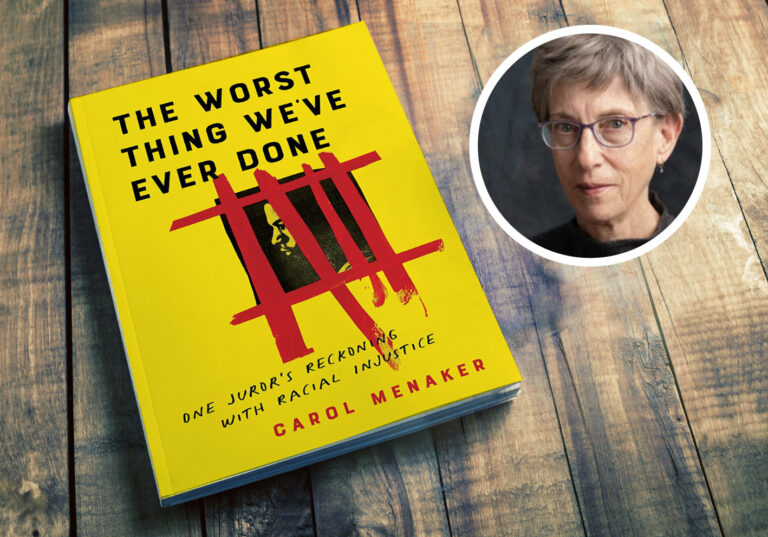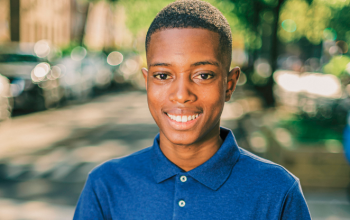According to the National Center for State Courts, 32 million people are summoned for jury duty each year, and 1.5 million of them go on to serve on a jury. Sooner or later, you may be called on to decide someone’s innocence or guilt. But for many reasons, jurors don’t always get it right. Skilled attorneys stack their decks of evidence, and faced with diametrically opposed narratives about the crime, each juror’s decision is often based on the personal worldview they bring with them to the courtroom. And if you’re a person of color on trial, the system can work against you each step of the way. As a society and as individuals, we can and must do better.
This message looms large in the new book The Worst Thing We’ve Ever Done: One Juror’s Reckoning with Racial Injustice. It shares Carol Menaker’s experience as a juror who, at 24 years old, voted to convict black revolutionary Freddy Burton of murder.
More than forty years later, though Burton remains incarcerated in a Pennsylvania prison, Menaker can no longer be certain of what actually happened in the warden’s office that day. Like so many others in the post-George Floyd era, she is working hard to raise awareness of the unconscious and systemic biases embedded in our criminal justice system.
“As much as I’d like to, I can’t give Mr. Burton, or the thousands of others who have been unfairly convicted, the years they have lost,” says Menaker. “What I can do is speak my conscience, call out racial injustices when I see them, and ask others to examine the ways in which their own privilege leads them to judge others in ways that are simply unfair.”
As high-profile cases sometimes require, Menaker and the other jurors were sequestered from the outside world from the time they were selected through the duration of the trial. Sequestration is not for the faint of heart. For twenty-one agonizing days, Menaker felt alone, afraid, frustrated, and desperate to get back to her family and life. Through a perfect storm of circumstances that included the trauma of being sequestered, conflicting witness testimonies, and confusion over the judge’s instructions, she (and eleven other jurors) eventually voted to convict.
Hindsight has changed things for Menaker. Today she’s haunted by the moment she stood in that Philadelphia courtroom and proclaimed the words “guilty of second-degree murder.” In fact, since 2018 she has been working with Burton’s current attorney to get his first conviction overturned—the conviction that landed him in prison in the first place. The Worst Thing We’ve Ever Done tells her story along with Burton’s and delivers compelling messages about our failing criminal justice system and how deep-seated privilege can make us blind to the oppression of others.




